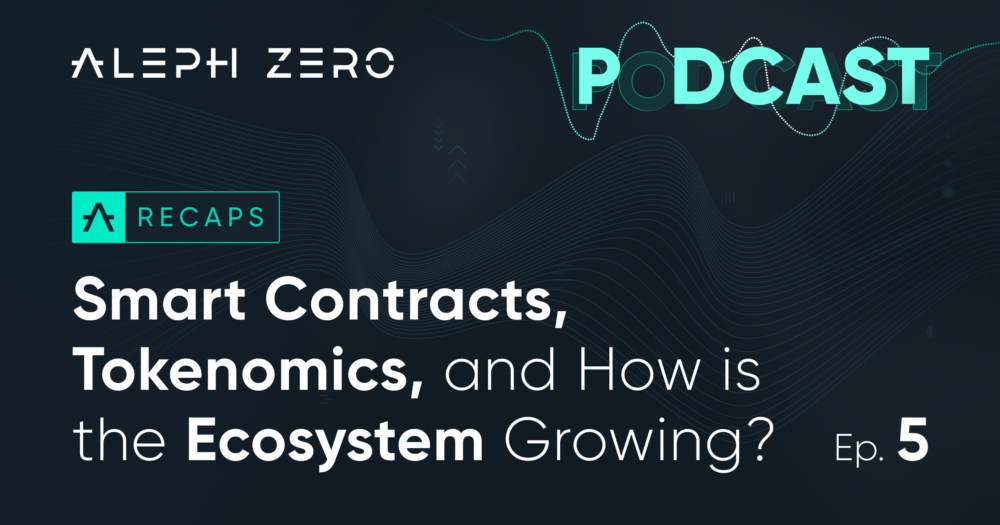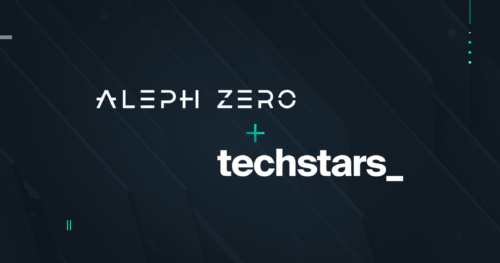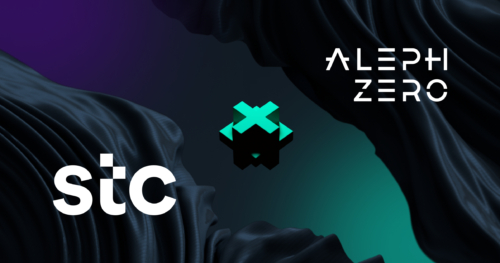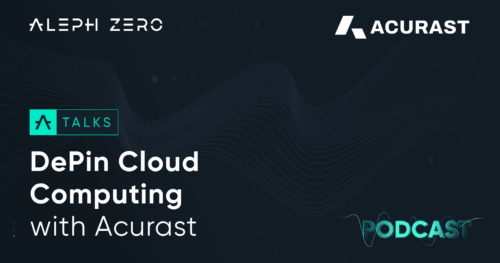Smart Contracts, Tokenomics, and How Is the Ecosystem Growing? Podcast Key Takeaways.
Jul 27, 2023

The fifth episode of the Aleph Zero Podcast originated as a Twitter Space, during which we discussed building on multiple blockchains with Brian Nguyen (ArtZero) and explored the growth of the Ecosystem Funding Program (EFP) alongside Max Sarafin (WW Ventures).
Listen to the full episode on the platform of your choice
TL; DL
Too Long; Didn’t Listen
- The EFP has received over 100 applications in the three weeks since it opened.
- The most popular verticals being applied for include DeFi, gaming, and NFT.
- Good track records, common core values, and ensuring code quality are important factors when vetting projects for the EFP.
- WWVentures is a boutique VC fund that invests in early-stage web3/crypto companies with a community-first approach. They have been highly supportive of Aleph Zero.
- ArtZero is the first NFT marketplace developed on Aleph Zero. They took advantage of the EFP by receiving a grant to audit the smart contract code they are using.
- Smart contract code may seem simple, but the implications of mistakes are enormous. Due diligence and caution are mandatory when writing code.
- For teams building on Aleph Zero, we encourage them to become acutely aware of the quirks of Rust and ink!
- The two pillars of ensuring code quality are the Testnet and auditing firms. The former allows potential users to try out your product, whereas the latter is here to help you formally ensure your code is correct.
- Mass adoption is when everyone is using Web3 without knowing they are using Web3.
The EFP Is Growing Rapidly!
Since the EFP launched, there have been over 100 applications in the first three weeks. A plethora of Web3 projects have been applying to benefit from the financial as well as marketing, and legal help issued by the program. The most popular verticals currently applied for include DeFI, gaming, and NFT projects. Due to the number of applicants, there have been delays in responding, for which we sincerely apologize. The Aleph Zero team has always prized quality and thoroughness, resulting in a strict admission process that is also quite time-consuming. The teams that apply are vetted on the basis of numerous criteria, including their track record, whether or not they possess the same values and vision towards Web3 as the Aleph Zero team, and finally, their dedication to due diligence and precision in ensuring code quality. Finally, projects are also chosen based on their contribution to building a balanced ecosystem. We want to distribute projects evenly across the verticals to build an ecosystem that is not weighted towards one particular use case.
WWVentures and ArtZero Share Their Insights on Web3
The two guests of the episode include Max Sarafin of WWVentures and Bryan Nguyen of ArtZero. The former is a boutique VC fund that invests in early-stage web3/crypto companies with a community-first approach. They have been highly supportive of Aleph Zero over the past years. ArtZero, on the other hand, is the first NFT marketplace developed on Aleph Zero. They are a beneficiary of the EFP, having received a grant to audit their smart contract code. Both Max Sarafin and Bryan Nguyen shared their thoughts on the current state of the market. Their conclusion was that we are currently in this middle ground between crypto endeavors occupying a niche space on the Internet and going mainstream. The 2021 bull run was proof that the industry could onboard large swathes of people. This momentum has subsided as the space learns what improvements can be made to introduce more people in the future. Both agreed that mainstream adoption occurs when people don’t have to make a conscious decision regarding using Web3 products. They just become default options.
The Importance of Smart Contract Due Diligence
The last point driven home in the episode was the discussion around smart contract best practices and safety. Smart contracts may seem simple to code, but the implications for mistakes are enormous. As stressed by Aleph Zero developer Piotr Moczurad, even small errors in the code can result in users losing money and sensitive information. In this regard, one of the more useful aspects of the EFP is the presence of auditing firms that cooperate with Aleph Zero and projects building in the ecosystem to provide high-quality feedback to builders regarding code quality. Additionally, Piotr Moczurad stressed that codes should be checked by auditing firms and on the Testnet itself. Tests on the Testnet allow builders to check their code in more realistic settings before Mainnet deployment. For example, builders can find out how their smart contracts behave when dealing with a large, active user base. This feedback is priceless when moving a smart contract to the Mainnet later.
Listen podcast

EP. 5 Smart Contracts, Tokenomics, and How Is the Ecosystem Funding Program Growing?
In today's episode of the Aleph Zero Podcast, we discuss building on multiple blockchains with Brian Nguyen of ArtZero and explore how the EFP works alongside Max Sarafin of WW Ventures.
We'll dive into some of the space's fundamental challenges and how to get involved with the Aleph Zero Ecosystem Funding Program.


